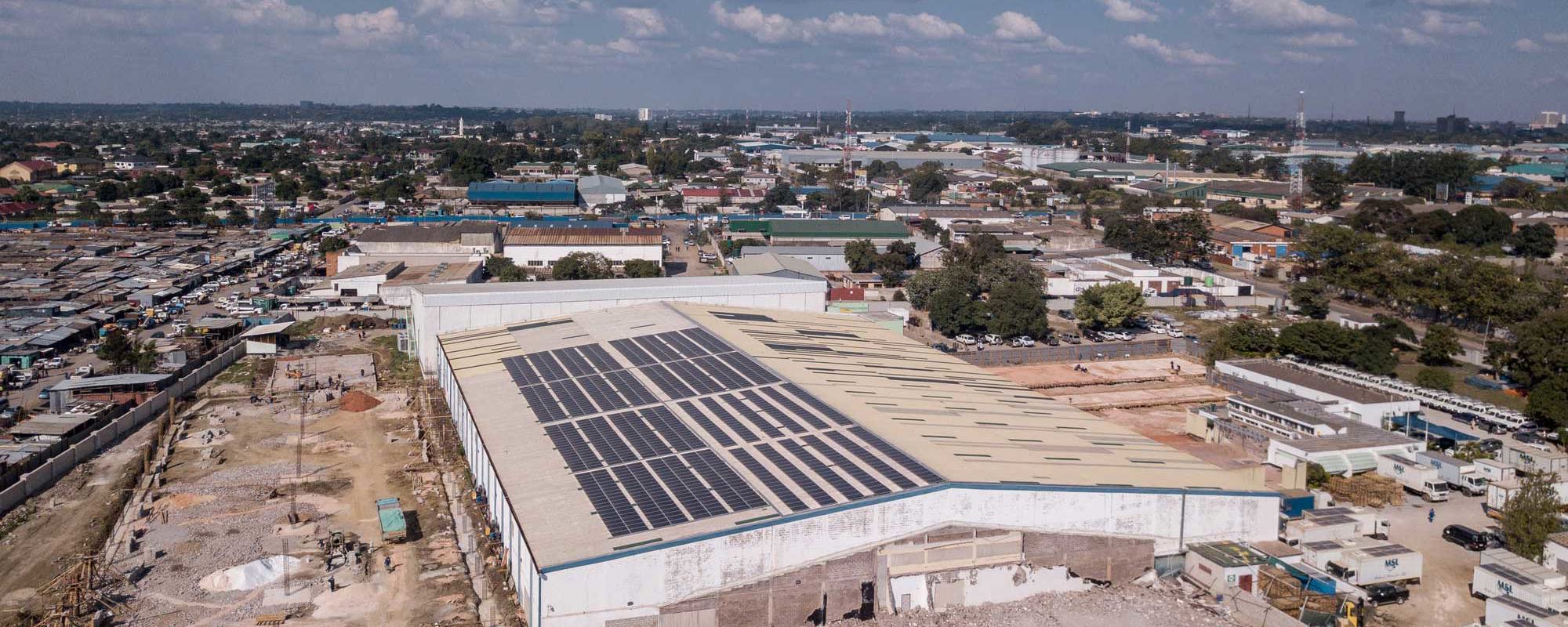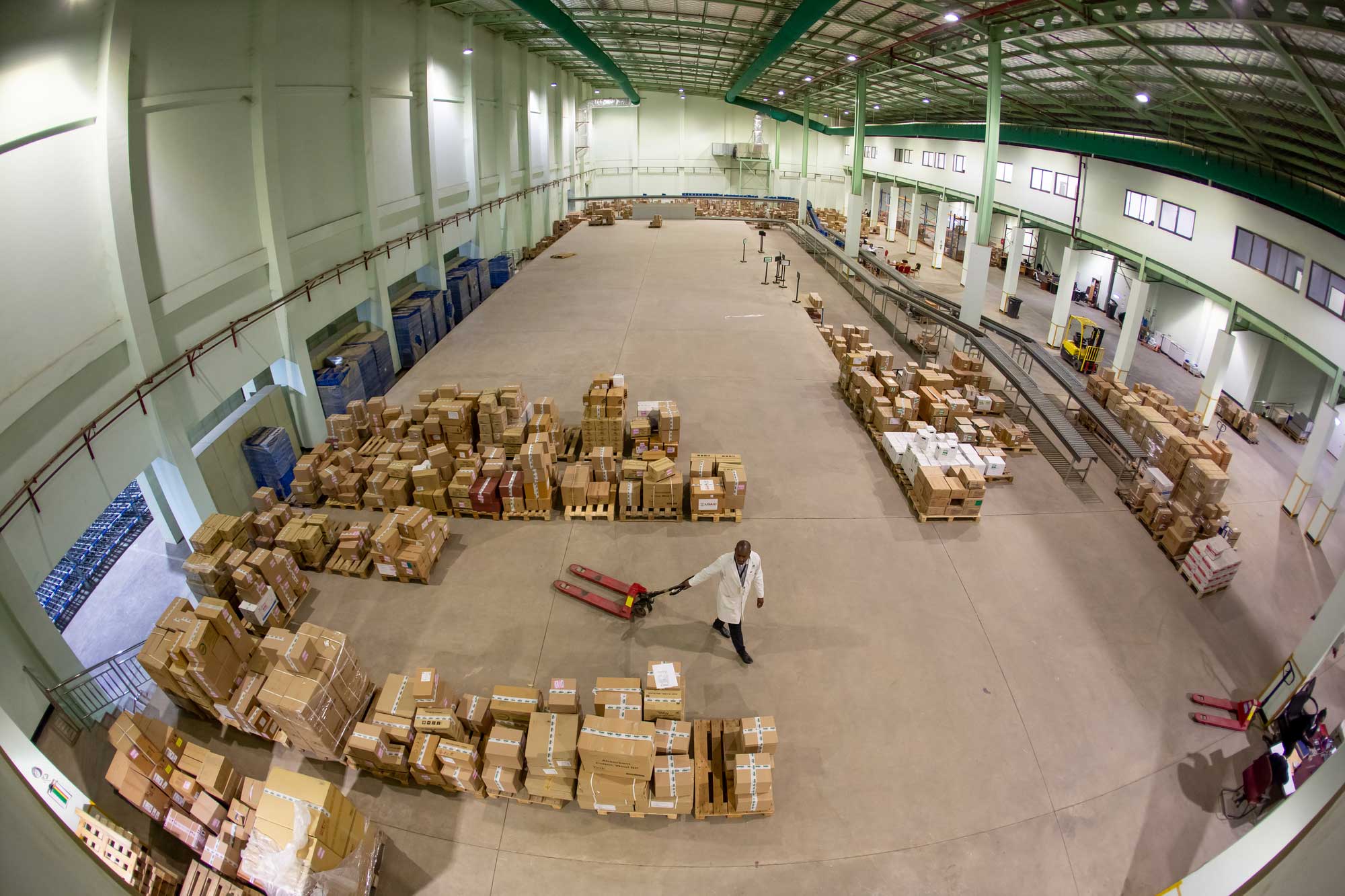

Zambia: Solar Power Fuels Better Health
Health facilities need power. Clinics, maternity wards, operating rooms, medical warehouses and laboratories all rely on electricity to function and provide lifesaving health care.
But in remote regions of the world, particularly in sub-Saharan Africa, health facilities face significant power shortages, which can cut off essential services during surgeries or childbirth and can damage medicines and vaccines that require constant refrigeration.
To address this power gap, the Global Fund supports the UN Development Programme (UNDP) Solar for Health initiative. In Zambia, this includes investments in the government agency that procures, stores and distributes pharmaceuticals. In the past, regular power interruptions affected warehouses and refrigeration units. To ensure a steady supply of electricity, a solar-powered energy system and an energy-efficient temperature control system were installed to power the 14,000 square meters of national medical warehouse space.
With the solar panels in place, the warehouse runs effectively even when there is no power from the national electricity grid. The new system also ensures medicines and vaccines are stored at the required temperatures.

Inside national medical warehouse in Lusaka, Zambia, which stores and distributes pharmaceutical health products, like vaccines and essential medicines, across the country. With the solar panels installed on its roof, the warehouse runs effectively even when there is no power from the national electricity grid.
Copyright: UNDP / Karin Schermbrucker for Slingshot
Solar power is better for the environment than fossil energy sources and helps countries reduce carbon dioxide emissions. Solar power also helps countries save money, which can then be reinvested to support other health programs. When health facilities with unreliable energy sources install solar power systems, UNDP estimates a 100% return on investment within two to seven years.







